Forward Deployment Engineers are the frontline technical experts who deploy and integrate software solutions for clients. They ensure that the software products seamlessly interface with client systems and meet specific requirements, acting as a crucial link between the development team and end users.
Skills required for this role include proficiency in programming languages, a strong understanding of system architecture, the ability to troubleshoot and analyze issues, and excellent client-facing communication skills.
Candidates can write these abilities in their resumes, but you can’t verify them without on-the-job Forward Deployment Engineer skill tests.
In this post, we will explore 7 essential Forward Deployment Engineer skills, 6 secondary skills and how to assess them so you can make informed hiring decisions.
Table of contents
7 fundamental Forward Deployment Engineer skills and traits
The best skills for Forward Deployment Engineers include Technical Support, Programming Languages, System Integration, Data Analysis, Network Configuration, Cloud Services and Security Protocols.
Let’s dive into the details by examining the 7 essential skills of a Forward Deployment Engineer.
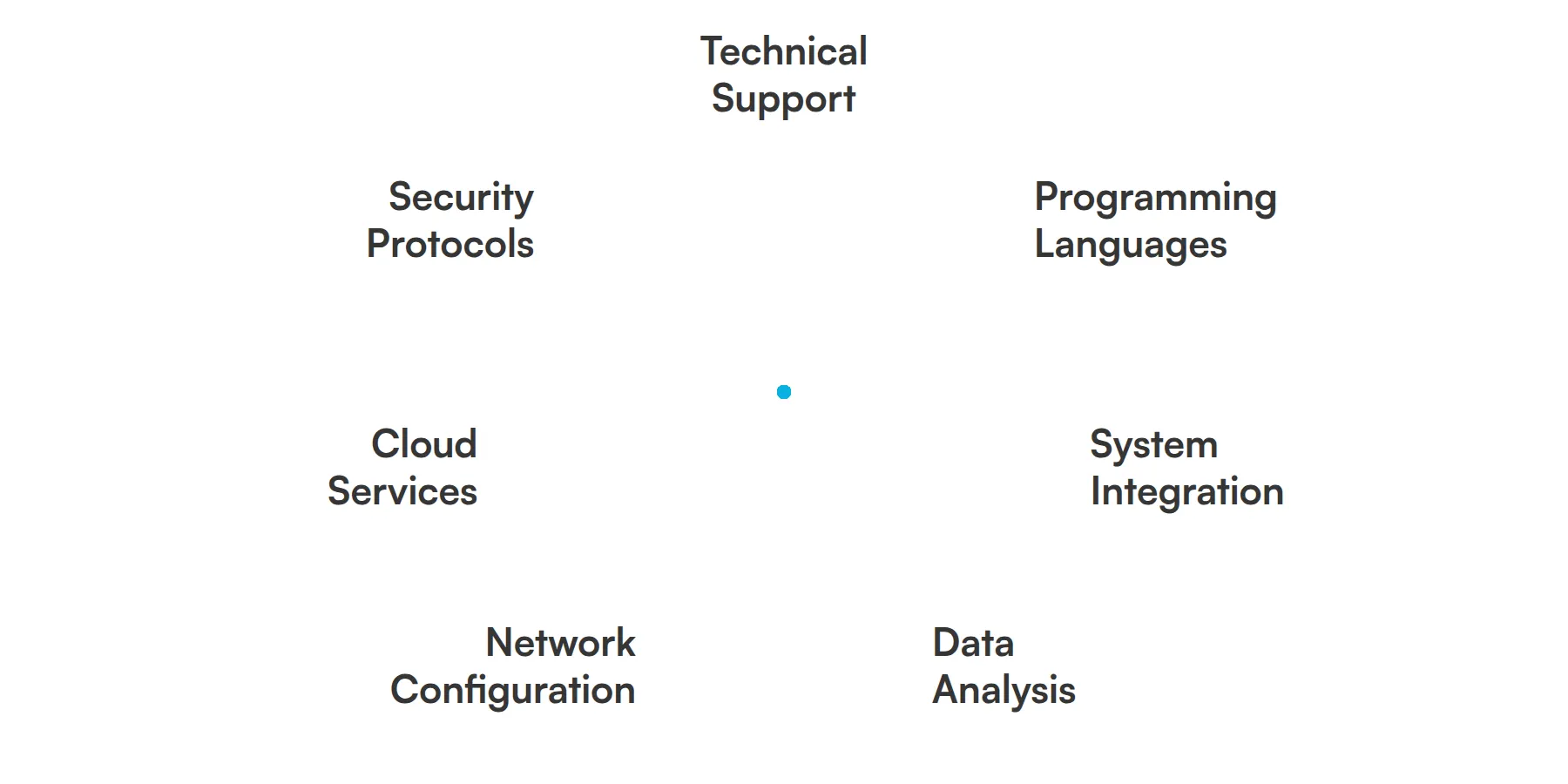
Technical Support
As a Forward Deployment Engineer, providing technical support to clients is a major part of the role. This involves troubleshooting issues, addressing technical concerns directly, and ensuring that systems function smoothly for end users.
For more insights, check out our guide to writing a Technical Writer Job Description.
Programming Languages
Proficiency in programming languages such as Python, Java, or C++ is critical. You'll need to write scripts and develop software tools to customize or integrate software solutions according to client needs.
System Integration
This role requires you to integrate diverse hardware and software systems. Understanding how different systems interact helps you build cohesive solutions that function seamlessly in client environments.
Data Analysis
Analyzing data is crucial for making informed decisions and optimizing system performance. You'll interpret metrics and use insights to suggest improvements or resolve ongoing issues.
Check out our guide for a comprehensive list of interview questions.
Network Configuration
Setting up and managing network configurations is key for ensuring connectivity and performance. This includes configuring routers, firewalls, and switches to meet client specifications.
Cloud Services
Knowledge of cloud services like AWS, Azure, or Google Cloud is vital for deploying and managing software solutions. You'll be responsible for ensuring these services are used effectively in the client environment.
For more insights, check out our guide to writing a Cloud Engineer Job Description.
Security Protocols
Implementing security protocols to protect client data and systems is an important task. Knowing how to guard against threats and vulnerabilities ensures the integrity and confidentiality of client information.
6 secondary Forward Deployment Engineer skills and traits
The best skills for Forward Deployment Engineers include Project Management, Documentation, User Training, Vendor Coordination, Customer Feedback and Backup and Recovery.
Let’s dive into the details by examining the 6 secondary skills of a Forward Deployment Engineer.
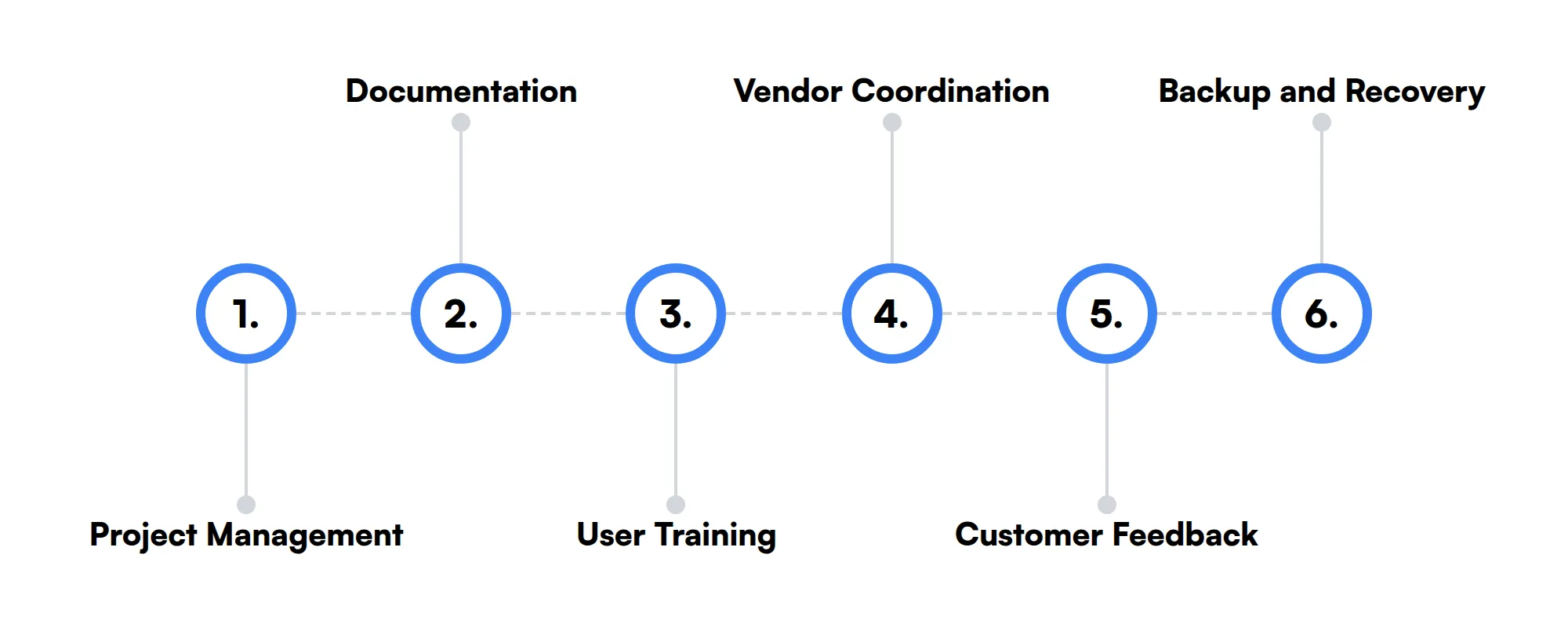
Project Management
Basic project management skills help you coordinate tasks, meet deadlines, and keep stakeholders informed about progress. This is crucial for ensuring that deployment projects stay on track.
Documentation
Creating clear and concise documentation for systems and processes is important for knowledge sharing. Well-maintained documentation helps others understand and manage the deployed systems effectively.
User Training
Providing training for end users ensures they can utilize the deployed solutions effectively. You'll often prepare training materials and guide users through the features and functionalities of new systems.
Vendor Coordination
Coordinating with vendors is often necessary to procure equipment or resolve third-party issues. This skill involves communication and negotiation to ensure client needs are met satisfactorily.
Customer Feedback
Collecting and analyzing customer feedback allows you to refine solutions and identify areas for improvement. It helps maintain a strong relationship with clients by showing that their input is valued.
Backup and Recovery
Ensuring the reliability and durability of client systems by managing backup and recovery processes is essential. You'll implement procedures to safeguard data against potential loss or corruption.
How to assess Forward Deployment Engineer skills and traits
Evaluating the skills of a Forward Deployment Engineer involves more than just checking off a list of competencies. Given their wide-ranging responsibilities, which include technical support, system integration, and data analysis, it is important to consider both their technical prowess and problem-solving mindset.
Resumes can outline a candidate’s experience, but they seldom reveal how effectively one can implement network configurations or manage security protocols in real-world scenarios. Skills-based assessments provide a clearer picture of these abilities, ensuring you select candidates capable of handling the specific needs of your organization.
Many skills required for Forward Deployment Engineers are not easily measured by conventional means, such as the ability to navigate cloud services or fluently work with various programming languages. To truly understand a candidate’s capabilities, it is essential to employ specialized talent assessments. Adaface on-the-job skill tests are designed to reduce screening time by 85%, offering a focused approach to identifying the right talent.
Let’s look at how to assess Forward Deployment Engineer skills with these 6 talent assessments.
Technical Support Test
Our Technical Support Test assesses understanding in IT infrastructure, troubleshooting, and communication skills. It covers operating systems, networking, hardware and software support, and IT service protocols.
The test goes beyond basic technical knowledge to assess scripting languages like Python and Bash. It includes ITIL processes, incident reporting, and documentation, focusing on real-world problem-solving abilities and customer service skills in technical support scenarios.
Candidates demonstrating proficiency show strong problem-solving and critical thinking skills. They also efficiently handle data backup and recovery procedures, and have a solid foundation in basic cloud computing concepts.
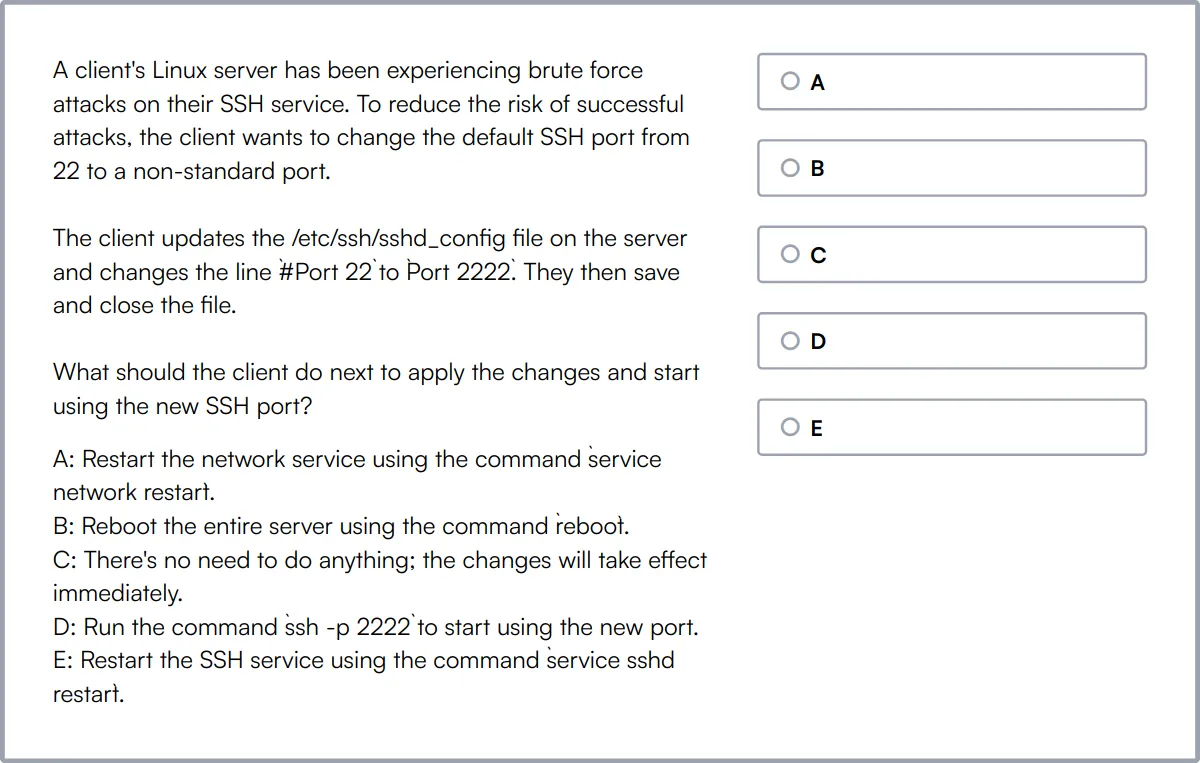
Basic Computer Skills Test
Our Basic Computer Skills Test evaluates fundamental computer skills, including data entry, Excel, and system administration. It focuses on essential computer operations and basic technical understanding.
Candidates are assessed on their ability to perform data entry tasks accurately and efficiently. The test evaluates their skills in Excel and typing, along with a foundational understanding of system administration and computer programming aptitude.
Successful candidates show proficiency in Linux and shell scripting, exhibiting the ability to manage basic system administration tasks and handle data analysis applications in various business contexts.
Windows System Administration Online Test
The Windows System Administration Online Test uses scenario-based MCQs to evaluate core knowledge in Windows system administration. It includes Active Directory, group policy management, and network services.
This test assesses the ability to manage Windows servers by validating knowledge in PowerShell scripting, server security, and networking essentials. It challenges candidates to apply their understanding of system monitoring and virtualization.
Candidates who perform well demonstrate expertise in disaster recovery and managing a secure enterprise environment. They show competence in network security, ensuring efficient management of Windows-based systems.
Data Analysis Test
Our Data Analysis Test assesses candidates' ability to handle, modify, and analyze data. It examines basics of data modeling, interpretation, and SQL proficiency.
Candidates showcase their ability to work with data queries and databases, conducting thorough data investigations and displaying strong skills in business analysis principles. The test requires understanding of data operations and exposure to popular tools like Excel.
High-scoring candidates demonstrate proficiency in data visualization and the ability to extract and interpret insights from charts, graphs, and complex data sets.

CISCO Routing Switching Test
The CISCO Routing Switching Test evaluates understanding of network routing and switching concepts and CISCO network equipment. It covers router and switch configurations, routing protocols, and network management.
The test assesses candidate proficiency with Cisco device troubleshooting and configuration through the command-line interface. Topics like VLANs, Quality of Service (QoS), and network security measures are also evaluated.
Candidates that perform well demonstrate a strong grasp of WAN technologies and a comprehensive knowledge of IP addressing and subnetting, crucial for efficient network operations.
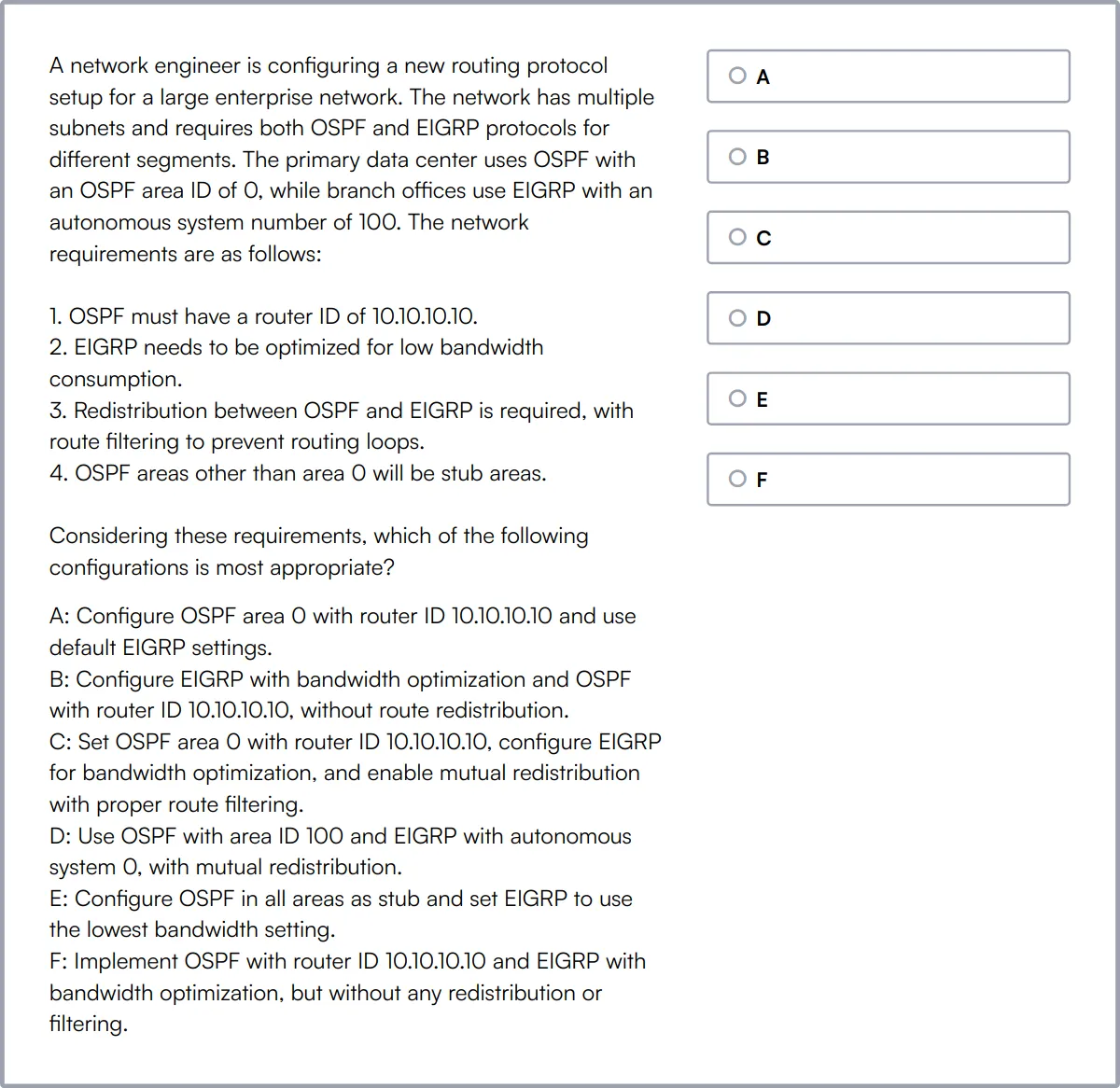
Cloud Computing Online Test
Our Cloud Computing Online Test evaluates knowledge on various aspects of cloud computing, including service and deployment models, virtualization, and cloud security.
It assesses candidate understanding of cloud networking and concepts such as scalability, elasticity, and cloud orchestration. Knowledge of cloud storage and database management is also tested, with a focus on security practices.
Candidates who score well exhibit strong capability in cloud automation and a comprehensive understanding of cloud service providers, ensuring robust cloud environment management.
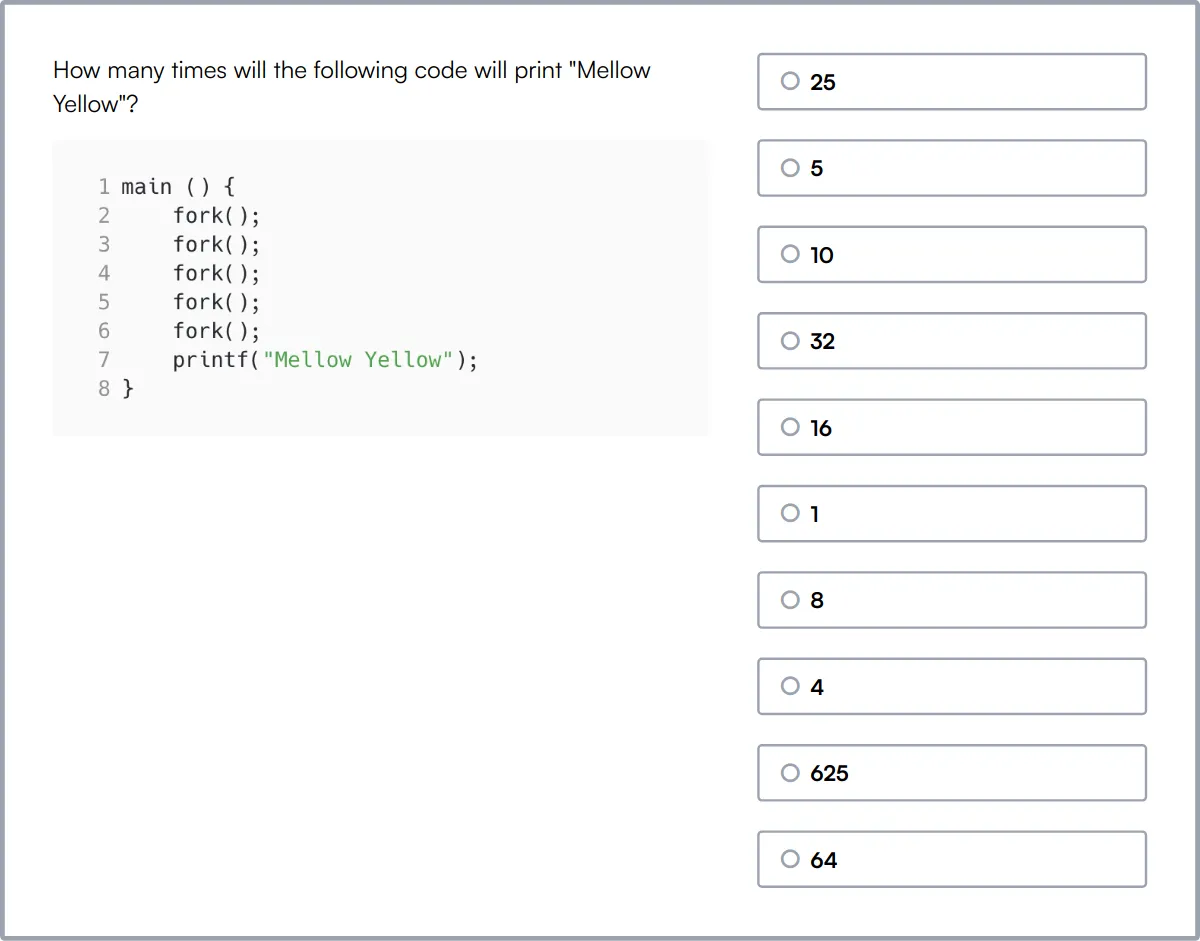
Summary: The 7 key Forward Deployment Engineer skills and how to test for them
| Forward Deployment Engineer skill | How to assess them |
|---|---|
| 1. Technical Support | Evaluate troubleshooting methods and problem-solving under pressure. |
| 2. Programming Languages | Test proficiency in writing and understanding codebases. |
| 3. System Integration | Review ability to connect and coordinate disparate systems. |
| 4. Data Analysis | Judge capability in interpreting and deriving insights from data. |
| 5. Network Configuration | Assess skills in setting up and managing network systems. |
| 6. Cloud Services | Check knowledge of deploying and managing cloud-based applications. |
| 7. Security Protocols | Determine understanding of implementing and maintaining security measures. |
Forward Deployed Engineer Test
Forward Deployment Engineer skills FAQs
What programming languages are crucial for a Forward Deployment Engineer?
A Forward Deployment Engineer should be proficient in languages like Python, Java, or JavaScript. These languages help in automating tasks, building integrations, and solving technical challenges.
How can technical support skills be assessed for this role?
Assess technical support skills by evaluating past experiences handling customer issues, problem-solving capabilities, and communication style through scenario-based questions.
Why is system integration important for a Forward Deployment Engineer?
System integration skills allow engineers to connect various systems and software, ensuring seamless operations and data flow across all platforms used by an organization.
What aspects of cloud services should a candidate be experienced with?
Look for experience with platforms such as AWS, Azure, or Google Cloud. Assess their knowledge in deploying applications and managing resources in a cloud environment.
How do Forward Deployment Engineers use data analysis in their role?
Data analysis is used to interpret data trends, optimize systems, and provide insights for decision-making. Skills in SQL and tools like Excel or data visualization software are beneficial.
What are the best ways to assess network configuration skills in a candidate?
Test their understanding of network protocols, ability to configure routers and switches, and troubleshoot network issues through practical assessments or simulations.
How is project management relevant to the Forward Deployment Engineer role?
Project management helps in planning, executing, and tracking deployments. Experience with tools like Jira or Trello and methodologies like Agile can be advantageous.
What criteria should be used to evaluate a candidate's documentation skills?
Check for clarity, conciseness, and structure in their past work or through a documentation exercise. Proper documentation ensures that technical details are communicated effectively.

40 min skill tests.
No trick questions.
Accurate shortlisting.
We make it easy for you to find the best candidates in your pipeline with a 40 min skills test.
Try for freeRelated posts
Free resources



